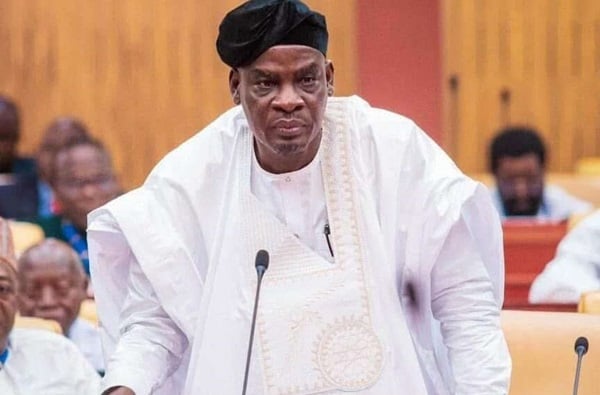Education Minister Haruna Iddrisu has dismissed claims by the opposition New Patriotic Party (NPP) that the 5.7 percent economic growth recorded in 2024 is not a sufficient measure of improvements in citizens’ living standards.
Addressing concerns about the 2024 Budget Statement on Wednesday, March 12, he maintained that the budget accurately reflects Ghana’s economic reality, which he described as heavily burdened by debt. He emphasized that the Finance Minister had not attempted to exaggerate the country’s financial situation but had instead presented an honest assessment.
He also highlighted the struggles of the Ghana Cocoa Board (COCOBOD), once a key driver of the economy, but now weighed down by significant debt.
“The honorable Ato Forson behaved like a woman in labor, sharing with Ghanaians the true state of the economy—an economy burdened by debt, in crisis, and on the brink of failure,” Iddrisu stated in an interview on Joy FM.
While acknowledging that economic growth is an important indicator, he stressed that it does not automatically translate into a better standard of living for the average Ghanaian.
The deteriorating state of the cocoa sector remains a major concern. Once a foundation of Ghana’s economy, COCOBOD played a vital role in job creation, foreign exchange earnings, and providing stable incomes for cocoa farmers. However, its current financial distress has raised serious questions about its sustainability and the livelihoods of those who depend on it.
The Finance Minister outlined multiple layers of debt weighing on the nation, including the national public debt, which has exceeded GHS 750 billion, as well as mounting liabilities in the cocoa, energy, and road sectors. Given these challenges, Iddrisu cautioned against unrealistic expectations that the administration’s first budget could instantly resolve all economic difficulties.
In response to the crisis, the Finance Minister urged all Ghanaians to actively support efforts to rebuild the economy. He underscored the need to address past mismanagement and chart a path toward recovery.
Iddrisu also criticized the previous administration led by President Nana Akufo-Addo and Vice President Dr. Mahamudu Bawumia, arguing that their claims of superior economic management had ultimately led the country into unsustainable debt.
“Between now and 2027, the burden on the government is immense. There are no excuses—Ghana must find a way to service its debts and set the economy on a sustainable path,” he concluded.


